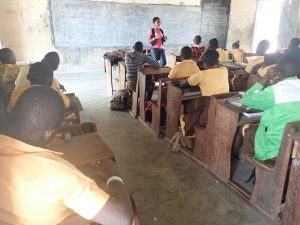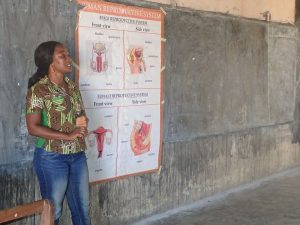 Today, the 6th of February is International Day of Zero Tolerance for Female Genital Mutilation (FGM). The United Nations define FGM as: “.. it comprises all procedures that involve altering or injuring the female genitalia for non-medical reasons and is recognized internationally as a violation of the human rights of girls and women.”
Today, the 6th of February is International Day of Zero Tolerance for Female Genital Mutilation (FGM). The United Nations define FGM as: “.. it comprises all procedures that involve altering or injuring the female genitalia for non-medical reasons and is recognized internationally as a violation of the human rights of girls and women.”
The Youth Harvest Foundation Ghana (YHFG) educates young females and males for several years about sexual and reproductive rights. This is important, since the Upper East Region in the north of Ghana has the second highest prevalence of FGM (Ghana Statistical Service, 2014). In general, puberty rites were not widely performed in the northern regions of Ghana. The menarche was a sign to prepare girls for marriage. However, FGM used to be a common and very harmful practice among the ethnic group “Frafra” and the Muslims in Bolgatanga Municipality to temper sexual desire and preserve the virginity of unmarried women. Although FGM prevalence among 14-to 25-year-olds has decreased in the Upper East Region in recent years (e.g. from 14% in 1995 to 5% in 1999), it is difficult to investigate and monitor this hidden practice. (read more)

Research in Bolgatanga Municipality, where YHFG is located, showed that students had a negative attitude towards FGM. This is promising and might help to decrease its prevalence (read more)
The YHFG find it important to give adolescents the right information, to guide and to counsel them so they can make informed choices. Jugendpartnerschaft Ghana supports the YHFG to continue their sexual and reproductive programmes for adolescents.
